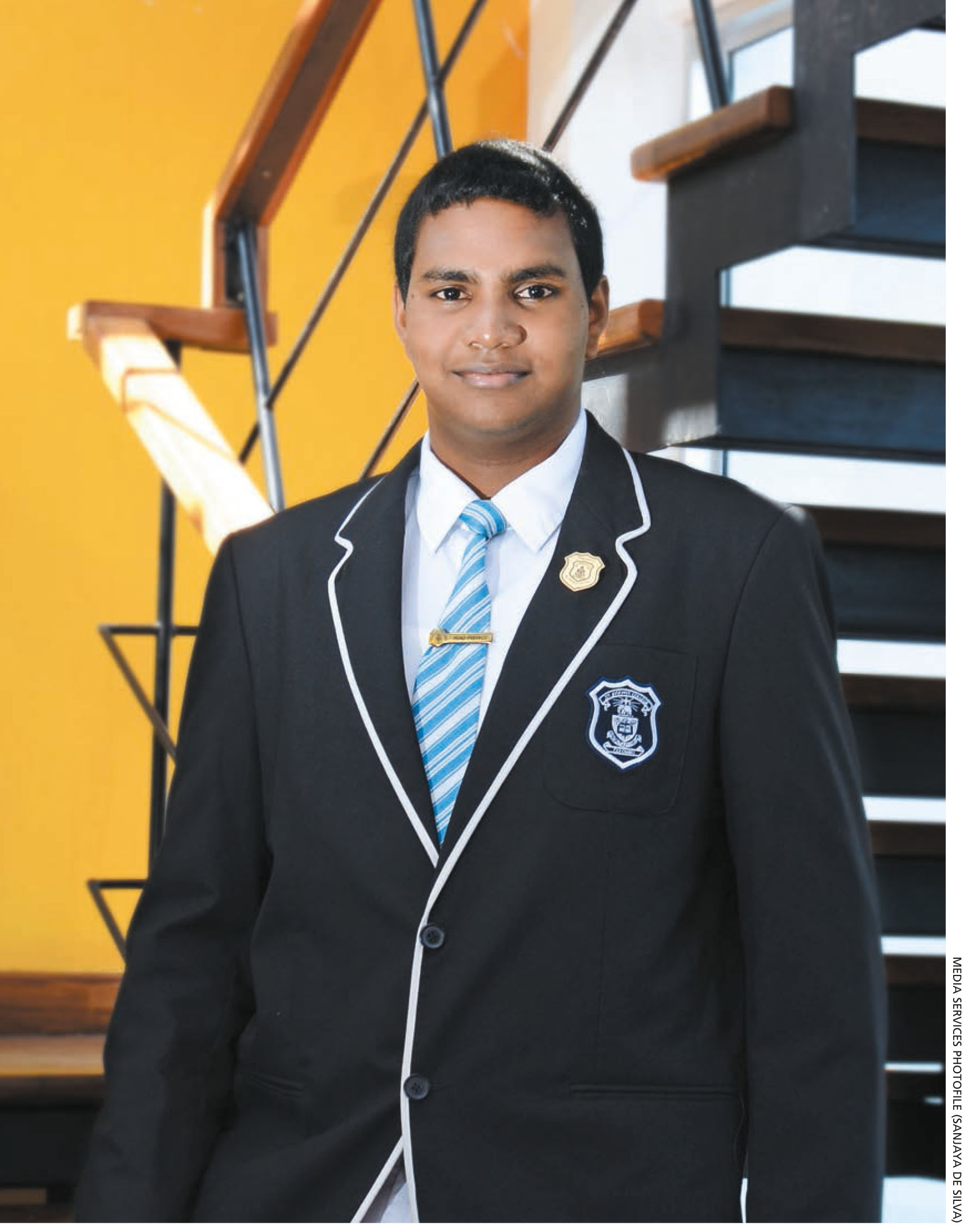YOUTH FORUM
TIME FOR BOLD LEADERSHIP
Joshua Croos Moraes hopes for a future where brave decisions are made
Compiled by Savithri Rodrigo
Q: What are the challenges facing the country, today?
 A: We’re facing an economic crisis and a debt trap, along with political instability and no clear governing policies or vision for the country. Sri Lanka needs to hasten the process of enticing foreign investment, generate employment and improve revenue generation, to escape the debt trap.
A: We’re facing an economic crisis and a debt trap, along with political instability and no clear governing policies or vision for the country. Sri Lanka needs to hasten the process of enticing foreign investment, generate employment and improve revenue generation, to escape the debt trap.
As a post-war nation, Sri Lanka is also striving to create racial harmony and bring about reconciliation, despite extremist groups attempting to disrupt unity. Adverse weather conditions are also affecting crops and power generation, aggravating the crisis.
Q: How can Sri Lanka retain the talent that it has?
A: Our education system – which has conventionally catered to producing doctors, engineers and lawyers – must be restructured to promote a multitude of careers, including those in sports, entertainment, hospitality and fashion. A close dialogue between universities, and the state and private sectors, is vital to developing a dynamic curriculum to keep pace with employment market trends.
Basic wages and benefits must be increased, to attract youth into public sector employment. Sri Lanka must create a non-discriminatory culture towards differently-abled students; and we must promote an entrepreneurial culture among the youth.
 Q: Do we have young leaders who can take the country forward?
Q: Do we have young leaders who can take the country forward?
A: There are many who’re willing and passionate about serving the nation. Given that the country experienced an ethnic conflict, it is our youth who must lead it back on track. With almost everyone being educated, citizens are gifted with the inherent qualities of planning and analysis to make the right decisions.
I would like to see an accountable and responsible leader, who is courageous in times of strife, transparent in decision-making and stays true to his or her roots.
Q: Do you believe that Sri Lanka will be united one day?
A: This (unity) will only happen if we leave the past behind, forgive each other and create a true sense of reconciliation. While this is a very idealistic viewpoint, parents, religious leaders and teachers play a major role in inculcating values that could be the foundation for the reconciliation process.
Extremist groups attempt to create racial disharmony, and one wonders if they have learned anything from the past. If we’re united, and begin working towards a common goal, Sri Lanka will become a country for all to cherish.
Q: Where do you see yourself in 10 years’ time?
A: Having completed my degree at a local university and a Masters in Law from a reputed foreign university, I would like to work as an apprentice to a lawyer or serve abroad in international human rights law. I hope to enter the legislature, to become a part of the law-making process in the country.
Q: How do you view the growing importance of social media?
A: It is an important platform to express views and generate awareness on social issues. Social media improves communication between people; but it needs to be managed, as it can have adverse impacts.
People can destroy each other, without being accountable for their actions. Social media also causes people to be socially awkward, where direct communication is forgotten. Meanwhile, extremist groups and terrorists use social media as a vehicle to spread messages of hate and discord.
Q: Who is responsible for global warming?
A: Humanity is to be blamed. Solutions include promoting renewable energy, minimising paper usage through digitalisation, banning eco-unfriendly material and the emission of greenhouse gases, and encouraging the manufacture of hybrid and battery-powered vehicles.
The Government should make climate change a national issue, and implement policies to promote eco-friendly industries, by awarding carbon credits.
Q: And finally, how do you view the ongoing conflicts in the world?
A: The world is now a frightening place, with each day marked by the deaths of civilians. Despite being so advanced in technology, we are still unable to prevent terrorist attacks.
As a result, some governments have begun investing in microchips, to track citizens’ movements, destroying fundamental rights.
And countries are producing weapons of mass destruction, for their protection – they could form the backdrop for another world war.
Leaders of the world are responsible for this, working to the diktats of interested parties who want destruction for their own undue advantag



